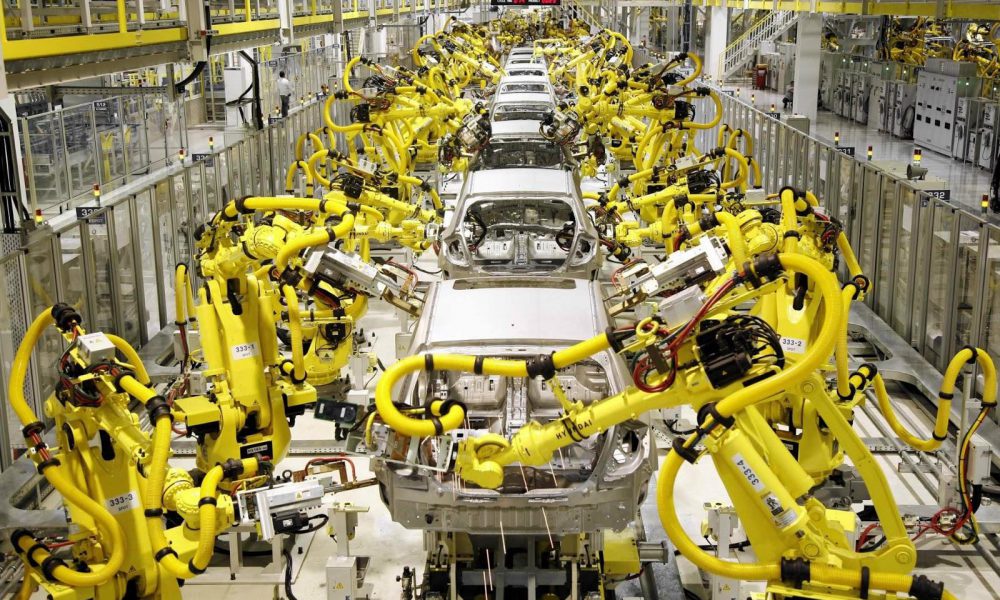How automation could impact “Make in India’’
By admin August 16, 2016 3:00 pm IST
Experts from the industry speak about the impact automation could have on “Make in India”
To succeed as a global manufacturing hub, India also has to be a leader in innovation. The “Make in India” policy thus has a strong focus on smart manufacturing, encouraging automation and state-of-the-art machinery to enhance productivity, from product development through to manufacturing and delivery.
India imports over 75 per cent of its oil requirements and faces persistent shortfalls in power supply, both of which make energy efficiency important in manufacturing. Subject to the vagaries of global energy prices, this can negatively affect profitability at the firm level. As India upgrades its manufacturing base, efficient energy systems will therefore play a critical role in keeping the sector globally competitive. The “Make in India” campaign will need to utilise the substantial energy savings potential in India if it is to be cost-competitive. Manufacturing activities already account for one third of the world’s total final energy demand and, with continued growth; industrial demand for energy is expected to rise rapidly, highlighting the importance of energy efficiency. India will benefit from being a late starter in this area as this provides an opportunity to adopt the latest energy-efficient technologies to support its ambitions in improving industrial performance. Such investments often pay for themselves quickly.
The key to improved energy efficiency will increasingly lie in software rather than in hardware. As advances in technology allow better management of equipment and processes, the challenge for industry will be to develop analytics capabilities in order to interpret data and report performance. Over time, it is likely that improvements in energy efficiency will be driven more by software and apps, and less by equipment and plant.Automation is a catalyst to achieve the energy efficiency target set up various regulatory and governments across the globe. Automation companies are in the right seat to drive these objectives since process know-how is extremely crucial.
“ABB offers integrated automation and IT-based solutions that help improve overall energy efficiency and operational productivity. The two co-exist and are interdependent. But the success of achieving the energy efficiency goal depends on adapting to new technology and doing away with less efficient and productive legacy systems, adapt to new manufacturing processes which is influenced by product design, and deploy energy efficient products such as motors and drives,” informs Madhav Vemuri, President, Process Automation division, ABB India.
The automation industry, in any country is directly related to the growth of the manufacturing sector. It is further boosted with the desire to produce better products. Competition among the manufacturers compels them to adopt advanced automation solutions as they want to excel in their operations by producing optimum quality products in large number with less human intervention.
There is strong potential for growth in the Indian industrial automation sector. The core verticals where maximum potential lie are the chemicals, petrochemicals, oil and gas, power and pharmaceutical industries. In these verticals, technologies like cyber security, critical infrastructure protection and integrated fire and gas solutions will see growth due to increasing safety and security threats. I would also recommend customers to invest in advanced automation technologies for existing plant upgrades.
“Make in India is at the heart of Honeywell’s strategy in the country. Honeywell and its employees are creating solutions and technologies in India, for India, and for the rest of the world. Honeywell’s contribution to the ‘Make in India’ story has been one of constant growth and commitment,” says Rajarshi Datta, Sales Director, Honeywell Process Solutions, India.
Ability to offer Automation at different levels including hardware, software would be one of the key triggers for the “Make in India” campaign, besides many other enablers which government has been trying to offer.
Cookie Consent
We use cookies to personalize your experience. By continuing to visit this website you agree to our Terms & Conditions, Privacy Policy and Cookie Policy.


















